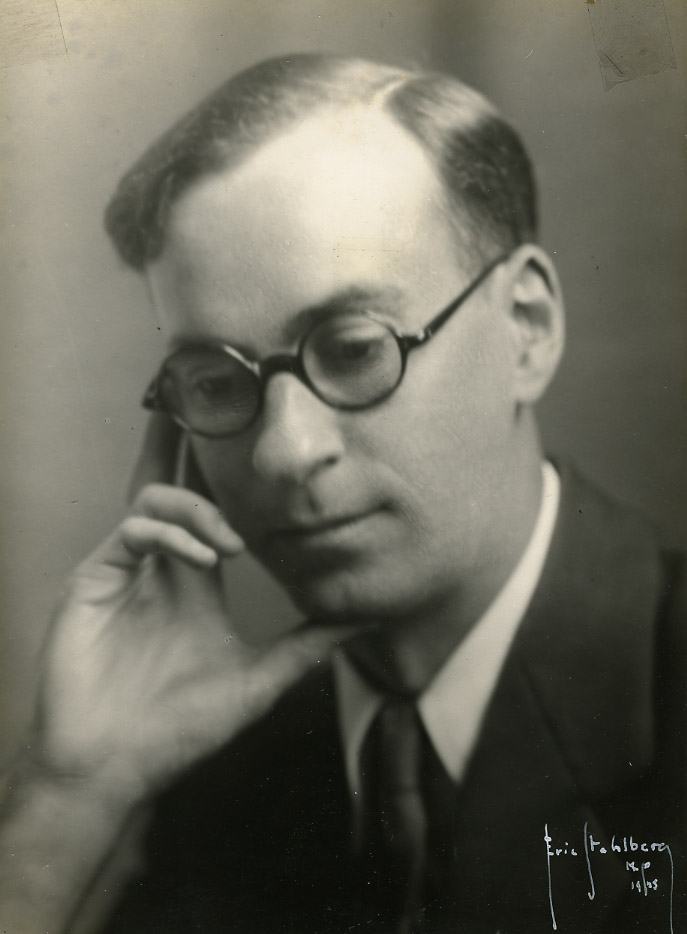Background on Robert Francis

Robert Francis, 1925.
A key figure in poetry circles in western New England during the mid-twentieth century, Robert Francis was born in Upland, Pennsylvania, on August 12, 1901, the son of the Rev. Ebenezer F. Francis and Ida May Allen Francis. In 1910, the Francis family moved to Medford, Massachusetts, where Robert attended the local public schools, graduating valedictorian of his high school, before entering Harvard College in 1919 to study literature. After receiving his bachelor's degree and teaching English in the prep school of the American University in Beirut, Lebanon, in 1923, Francis returned to Harvard to study for a master's in education.
Teaching, however, never became Francis's focus in life. A few months after completing his M.Ed., he moved to Amherst to teach English in the high school, but remained only a year. From this slender beginning in western Massachusetts, Francis set out to create a base for a literary career, supporting himself at first by his writing and by teaching violin. Over the next decade, he poured forth a steady stream of articles for a variety of newspapers, including a regular stint writing the "Home Forum" column of the Christian Science Monitor (1938-1954). Francis's poetry and longer essays also began to appear in print on a regular basis.
In 1936, Francis published his first volume of poetry, Stand With Me Here, with Macmillan, a critically well-received collection of modern verse that firmly established his poetic voice and garnered the attention and of fellow writers. One of those instrumental in the publication of Stand With Me Here was David Morton of Amherst College, whose friendship brought the benefits both of encouragement and wide experience with publishing.
On the strength of his first book, Francis was invited in August 1937 to attend the Breadloaf Writers Conference as a fellow, where he met Kentucky writer James Still. Primed by his experience at Breadloaf, Francis published his second volume, Valhalla and Other Poems, a year later, winning praise from one of New England's best known poets, Robert Frost. With a rapidly expanding circle of literary friends and associates, Francis's career seemed to be gathering steam, and his efforts began to bear fruits: in March 1939, he was named co-recipient of the Shelley Memorial Award and in 1942-1943, he became the recipient of the Golden Rose Award of the New England Poetry Club. Through his involvement with the Club, he became acquainted with another important friend and literary sponsor, Gretchen (Mrs. Fiske) Warren.
With his fortunes waxing in 1940, Francis built a Spartan, one-man cottage on Market Hill Road in North Amherst to serve as his writing refuge. Fort Juniper, as he began to call the house, fulfilled the essential conditions of Francis's philosophy, combining his love of nature, leisure, and solitude.
In 1944, after brief service in the army during the Second World War, Francis accepted a position in the English Department at Mount Holyoke College. When he again resigned from the teaching profession, little more than a year later, he renewed his commitment to writing. In addition to contributing a regular column, "Country Comment," to Forum magazine, Francis published a novel, We Fly Away, in 1948, and a third volume of poems, Face Against the Glass, in 1950. This period of high productivity, however, came crashing down in the early 1950s, when Francis passed through what he later called his "Lean Years." During these years, he found a measure of compensation through his performances as a violin soloist in churches and publications in The New Yorker and The Saturday Review. Even though his rate of publication in poetry suffered, he continued to reap the rewards of a strong reputation. In 1955, he was named Phi Beta Kappa poet at Tufts University, he spent the academic year 1957-1958 on the Rome Prize Fellowship from The American Academy of Arts and Letters, and he spent the year 1960 as poet in residence at Harvard. He returned to Italy in 1967 on an Amy Lowell Poetry Scholarship.
In 1965, Francis issued his fourth collection of poems, Come Out Into the Sun, with his fifth, Like Ghosts of Eagles, following in 1974. He turned to memoir in the 1970s, with the appearance of an autobiography, The Trouble With Francis, in 1971, and Frost: A Time to Talk in 1972, his account of visits with Robert Frost in the 1950s, both published with the University of Massachusetts Press. 1976 was a particularly productive year, featuring the appearance of three volumes: A Certain Distance (a book of prose sketches), Collected Poems, and Francis On the Spot: An Interview With Robert Francis, conducted by Philip Tetreault and Kathy Sewalk-Karcher.
At this late point in his career, Francis began to receive a surge of attention, both locally and nationally. In Amherst, he was regularly called upon to give readings of his work at the Jones Library (the local public library), and on several occasions, he was featured on "Poems to a Listener," a program on the Five College radio station, WFCR. Nationally, the Academy of American Poets recognized Francis with its award for "distinguished poetic achievement" in April 1984. All the while, Francis continued to write, publishing his reflections on poetry, Pot Shots at Poetry, in 1980, followed in 1984 with his final volume of poems, Butter Hill, and a book of short prose pieces, The Satirical Rogue on All Fronts.
In 1981 interview with the Daily Hampshire Gazette, Francis remarked that his "specialty has been not to earn much, but to spend little," however his specialty also included a literary talent that spanned the genres of poetry, essays, novels, memoirs, and journal writing, and talents that extended to a wide circle of friends and fellow writers, from Frost, Still, and Morton to younger poets such as Anne Halley and Doris Abramson. Robert Francis died in Amherst in July 1987. The Juniper Prize in Poetry, established by the UMass Press in 1975, is named in honor of Francis's North Amherst home.

